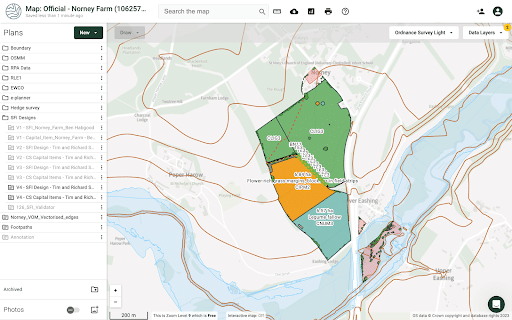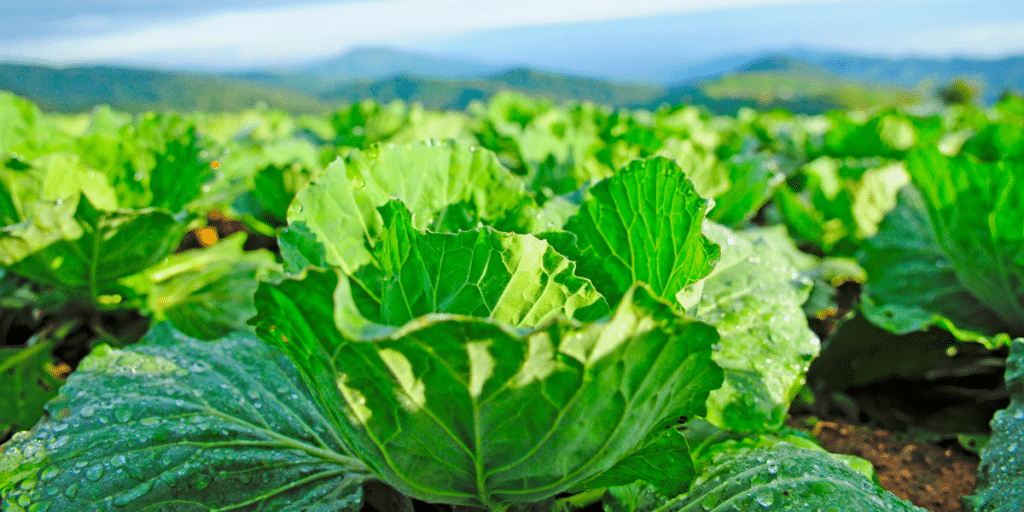As time goes on, the Sustainable Farming Incentive (SFI) looks set to be a pivotal element in shaping the future of our agricultural practices.
Collaborative Scenario Planning with Surrey Wildlife Trust
One of the most critical aspects of developing our SFI plan at home has been our work with the Surrey Wildlife Trust. At Norney Farm, in Surrey, we’ve undergone four or five iterations of our SFI design to ensure it meets our family’s needs whilst maximising both revenue and environmental benefits. Our plan links us to the local Heathland Connections project with Natural England and aligns with Surrey’s forming Local Nature Recovery Strategy being led by Adam Brown. Through this collaborative effort, we are playing our part to ensure our SFI design integrates seamlessly with the local landscape and meets our business needs while fostering long-term partnerships.

Cost and Profit Assessment
As we all know understanding the cost implications of different options within the SFI framework is paramount. Quick, accurate cost assessments have enabled us to evaluate the potential profitability of each option, ensuring that we make informed decisions. However noble your intentions, transparency in costs and expected outcomes is crucial to ensure the long-term success of any sustainability initiative.
Value of Collaboration
The journey towards implementing SFI 2024 has underscored the value of collaboration. By bringing together diverse perspectives and expertise, we have been able to overcome various challenges and identify innovative solutions. This collective approach not only strengthens our strategies but also fosters a sense of community and shared purpose among all stakeholders. The platform’s mapping capabilities have allowed us to visualise our plans, track progress, and make necessary adjustments in real-time. This has proven invaluable in maintaining the efficiency and effectiveness of our sustainability efforts. Particularly with multiple stakeholders across different organisations. It’s a lot easier to organise a Zoom call than an in-person meeting – and a lot easier still to edit a live map than decipher notes taken on a paper map (perhaps a career as a doctor could have been more fitting given my handwriting?)
Management and Mapping with LandApp
Post-funding management of the chosen options is another essential factor. The ability to effectively manage and monitor our SFI initiatives should be significantly enhanced by using Land App. Already it’s allowed us to perform real-time collaboration and remotely design our scenarios. After conducting on-the-ground surveys, we used the (early release of) Land App Mobile surveys to capture photos and perform surveys. This has enabled us to quickly and effectively design a well-constructed scheme that maximises all desired benefits.
Currently, that’s where the digital journey gets fragmented for SFI scheme applications, however, I can let you know that we are in discussions with DEFRA about the potential to digitally submit our plan, streamlining the application process and reducing costs further. I will be sure to keep you updated on our progress in this area.
Responsibility to the Land and Future Growth
At the heart of our efforts (on the farm, and at Land App as a whole) lies an unwavering commitment to the land. Sustainable farming is not just about meeting regulatory requirements or securing funding; it is about ensuring the long-term health and productivity of our soil and ecosystems. This underlying responsibility drives our actions and motivates us to continuously seek better practices and technologies. For my family, ensuring we can continue to build revenue and profit allows us to invest in regenerating buildings and creating a thriving hub of rural activity on our family farm.
From Land Ap’s perspective, our whole mission is to support the entire rural economy’s transition to regenerative practices. We aim to build the bottom line for farmers, support regeneration across the land economy, improve resilience within food supply chains, and turn the UK into a hub for the nature market before supporting land managers overseas.
Looking Ahead
As we look forward to the new government’s policies, we remain hopeful for continued support and advancements in sustainable farming. While the political landscape may change, the fundamental need to protect and preserve our land remains constant. I anticipate that the new administration will recognise the importance of sustainable practices and provide the necessary resources and incentives to support farmers in their endeavours.
I’ll end by saying that SFI 2024 represents a significant opportunity for us nationally to advance our sustainability goals. Through collaboration, careful planning, and a deep-seated responsibility to the land, we are well-positioned to navigate the challenges and seize the opportunities that lie ahead. I am excited to see how our collective efforts will shape the future of farming and contribute to a more sustainable world.
Best Regards,
Tim Hopkin
While you’re here…
In our ongoing commitment to deliver exceptional service, we value your input. Your feedback is crucial in helping us improve and better serve you. Please spare a few moments to share your thoughts in this brief survey. Your insights play a vital role in our continuous efforts to enhance your experience and support you more effectively.

